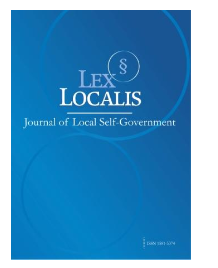LEGAL PLURALISM AND SOCIAL IDENTITY: AN ANALYSIS OF STATE AND RELIGIOUS LAW INTERACTION IN LOCAL DISPUTE RESOLUTION IN INDONESIA AND PAKISTAN
DOI:
https://doi.org/10.52152/bt4pv061Keywords:
Legal Pluralism, Social Identity, Socio-Legal Studies, Adat Law, Jirga, Local Dispute Resolution, Indonesia, Pakistan.Abstract
This paper explores the dynamics of legal pluralism and its relationship with social identity through a comparative analysis of Indonesia and Pakistan. Both nations, while differing in historical and cultural trajectories, share a similar complexity in their legal systems where state law, religious law, and customary norms coexist and interact. Using a socio-legal perspective, this study examines how local dispute resolution mechanisms adat law in Indonesia and jirga in Pakistan reflect the broader interaction between state authority and community-based legitimacy. Findings indicate that legal pluralism in both countries is not merely a formal coexistence of legal systems but a reflection of social negotiation and identity construction. In Indonesia, adat law serves as a mechanism of social harmony and restorative justice, emphasizing consensus (musyawarah) and collective responsibility. In contrast, the jirga system in Pakistan manifests a patriarchal and hierarchical social order rooted in tribal codes of honor. Although often criticized for contradicting formal legal principles, both systems demonstrate the enduring role of localized justice and moral legitimacy within their respective societies. By comparing these contexts, this paper argues that understanding legal pluralism is essential for building inclusive legal frameworks that accommodate cultural diversity and strengthen community participation in justice delivery.
Downloads
Published
Issue
Section
License
Copyright (c) 2025 Lex localis - Journal of Local Self-Government

This work is licensed under a Creative Commons Attribution-NonCommercial-NoDerivatives 4.0 International License.








